- Details
- Written by: julie schram
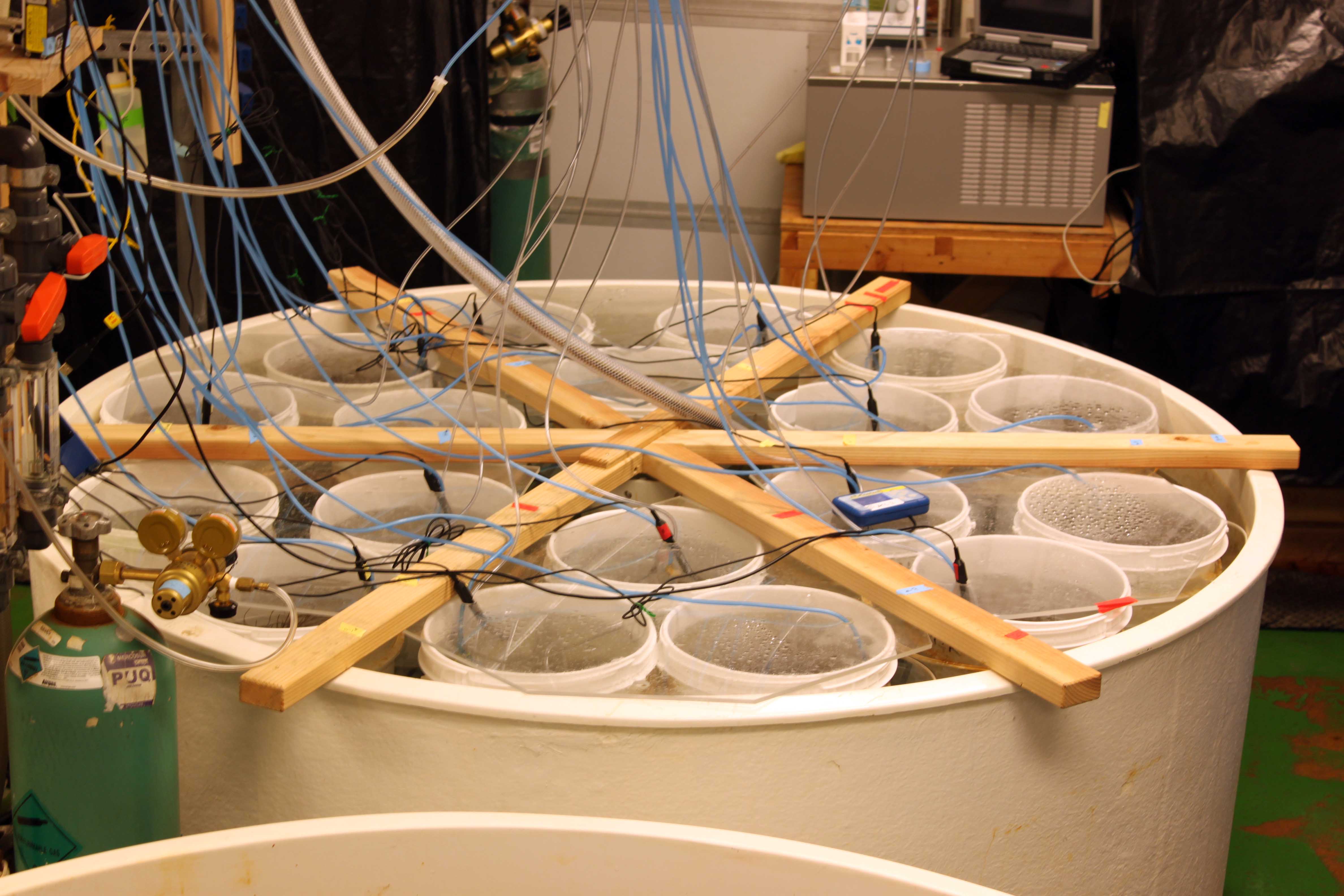
On Monday this week we built 18 mesocosm "universes" in the Palmer Station aquarium. That may sound a little out of this world, but let me explain. This week we started our mesocosm experiment, utilizing the relationship a large species of brown algae (the same big branched brown Desmarestia menziesii I mentioned in a previous post) and all of the amphipods on it. We created smaller simulated natural "community" assemblages from carefully collected Desmarestia. See the image right for my multple universes, complete with air lines and pH probes.
- Details
- Written by: Maggie Amsler
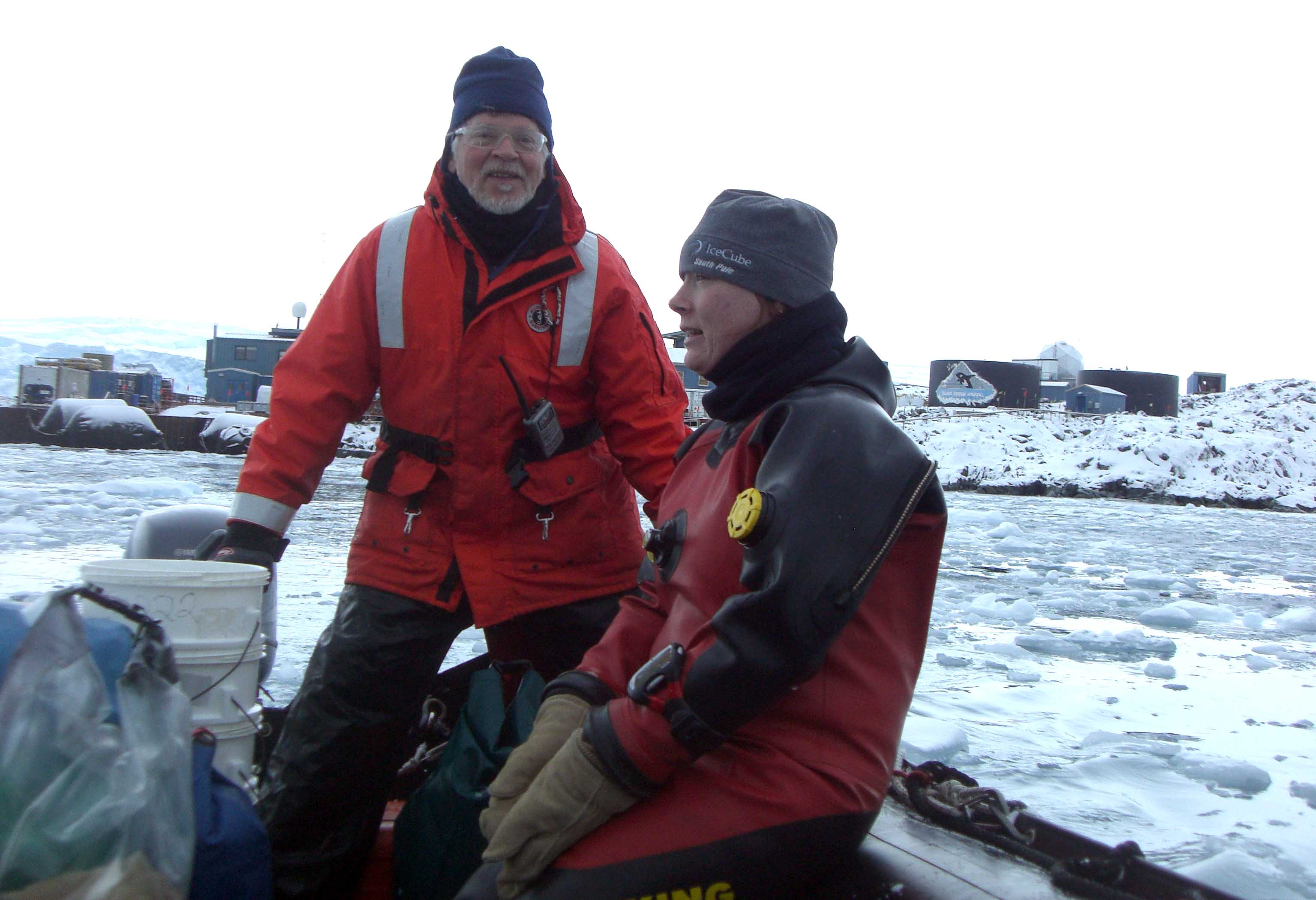
As Chuck hinted in Dive Ops, part 1 this entry will focus on the tender side of our diving operation. Tender, in our vernacular, is used as a noun and refers to the act of tending to one's needs – in this case – a diver's needs. All of our dive operations have two divers and two tenders. Every project member routinely serves as a tender and often a volunteer or 'town tender' substitutes for one of us so that member can remain on station to instead tend to lab work. The other day I served as project tender and had the delightful assistance from town tender Harry Snyder, the winter-over carpenter. In addition to extraordinary wood working skills, Harry jams smiling at ease on the guitar and at the throttle of a zodiac as pictured.
- Details
- Written by: Kevin Scriber
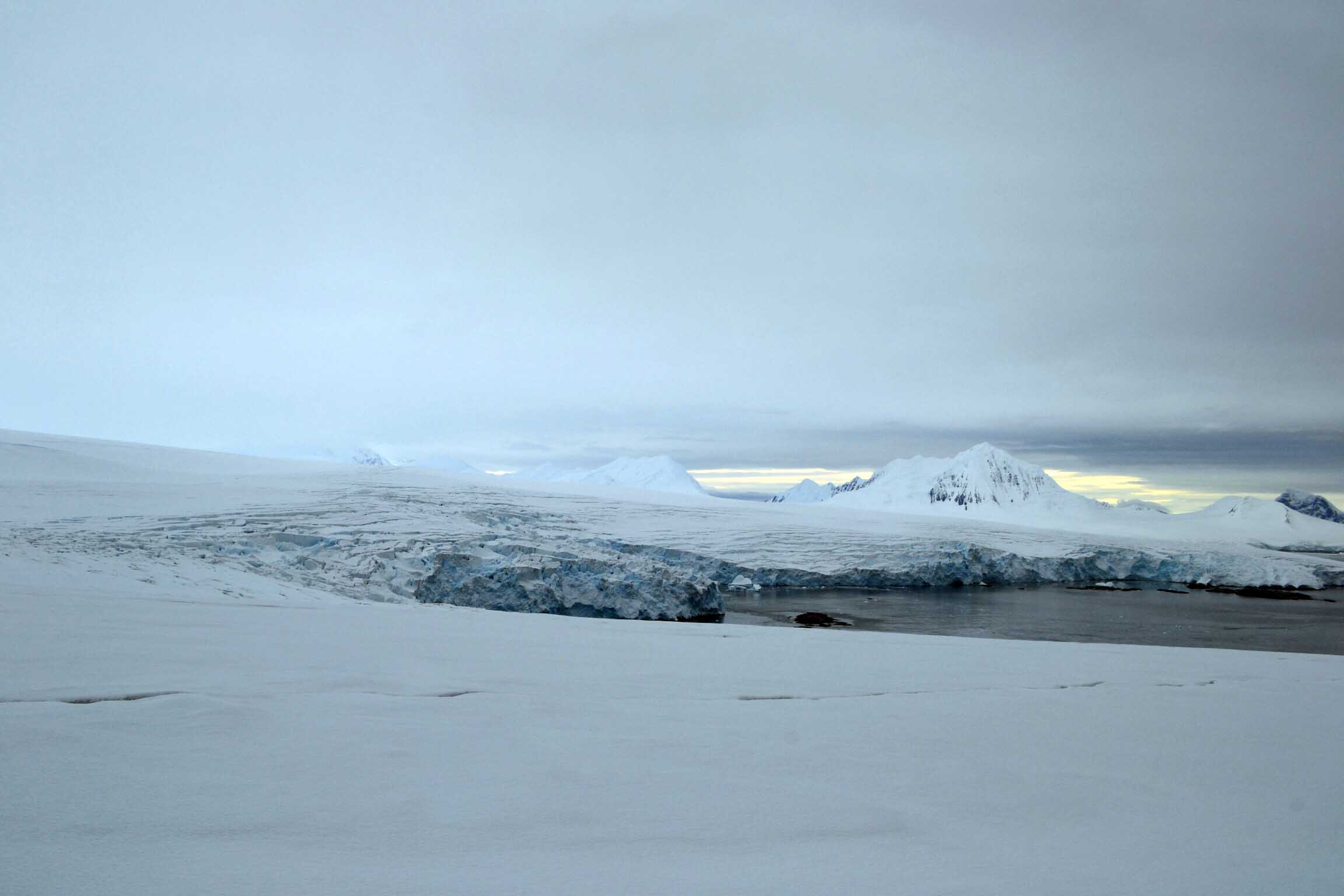
The day I prepared to leave Palmer Station, I took a final glimpse from my dorm window at the splendid architecture of the glacier. I finally had an opportunity to climb the glacier and walk to its far side, days before I left. Crossing the field of boulders in the back yard, separating Palmer Station from the glacier, was a long walk. I eventually reached the glacier and began my ascent, aided by the spikes I affixed to my boots for stability on the ice. I climbed higher and higher; soon, Palmer Station was barely visible.
- Details
- Written by: Chuck Amsler
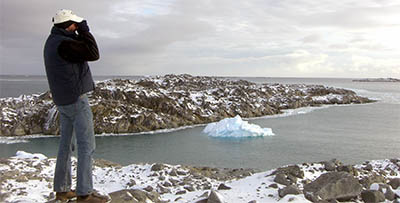
Scuba diving is a central part of our research here. We call it "Dive Ops" which is short for Diving Operations. All our experimental manipulations on this project are done in the lab but since the organisms we are studying live along the bottom of the ocean (described then as benthic organisms), Dive Ops are critical in order to collect them and their food. Today Julie and I needed to dive to collect food for the amphipods (shrimp-like animals) that she is working with in the lab and also some more amphipods for upcoming experiments.
- Details
- Written by: Kate Schoenrock
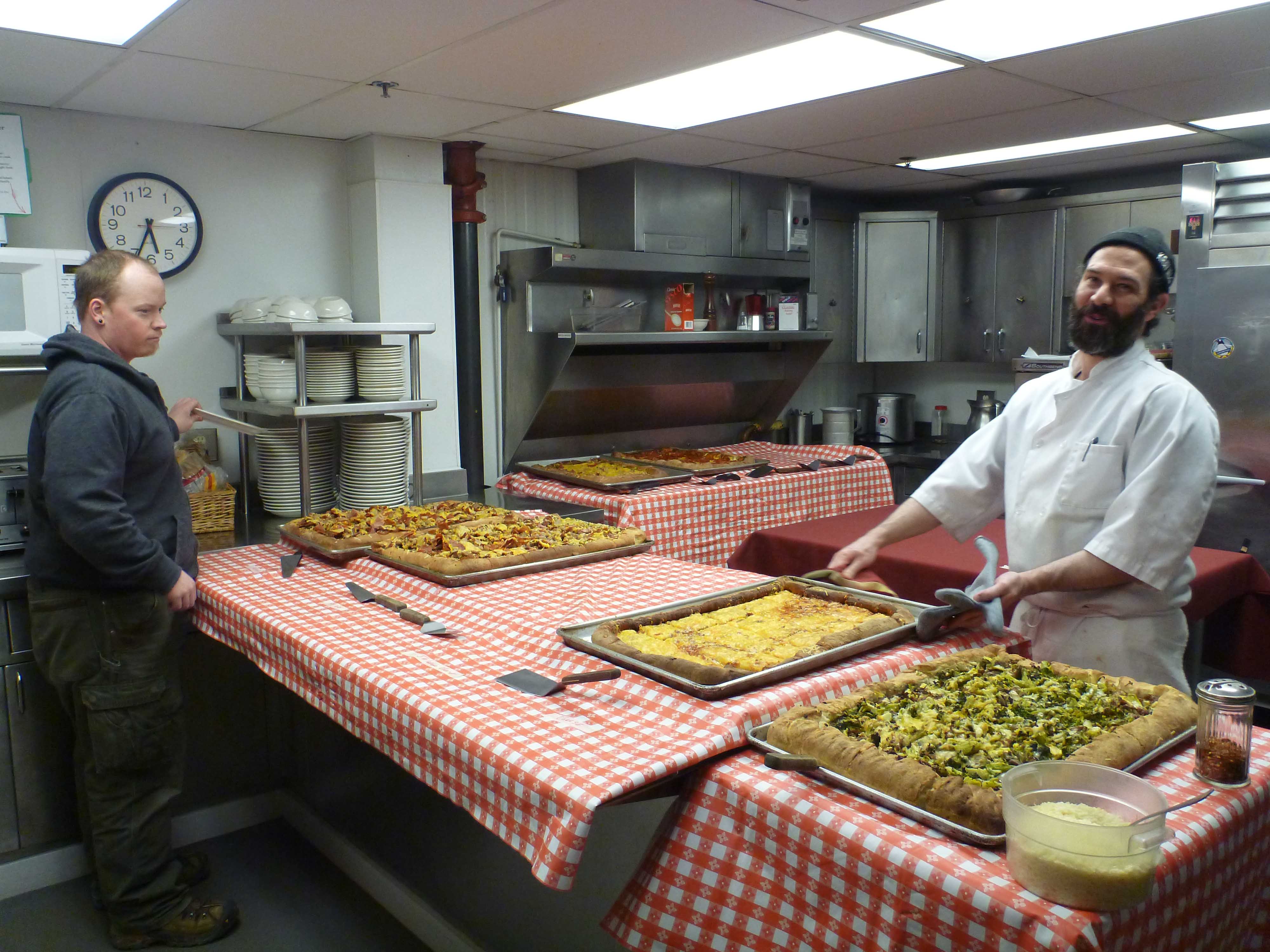
The change in seasons always includes a turnover from summer to winter station crews. Before ship sailing, both the station and crew of the Laurence M. Gould gather together to share one last meal before roam apart. We call this cross town dinner, and usually it's a pizza feast with pies in all shapes and flavors as well as a contribution from the boat. Most summer crew people are ecstatic to head north, and they better start swimming or they'll sink like a stone, for the times they are a changin'.
- Details
- Written by: Jim McClintock
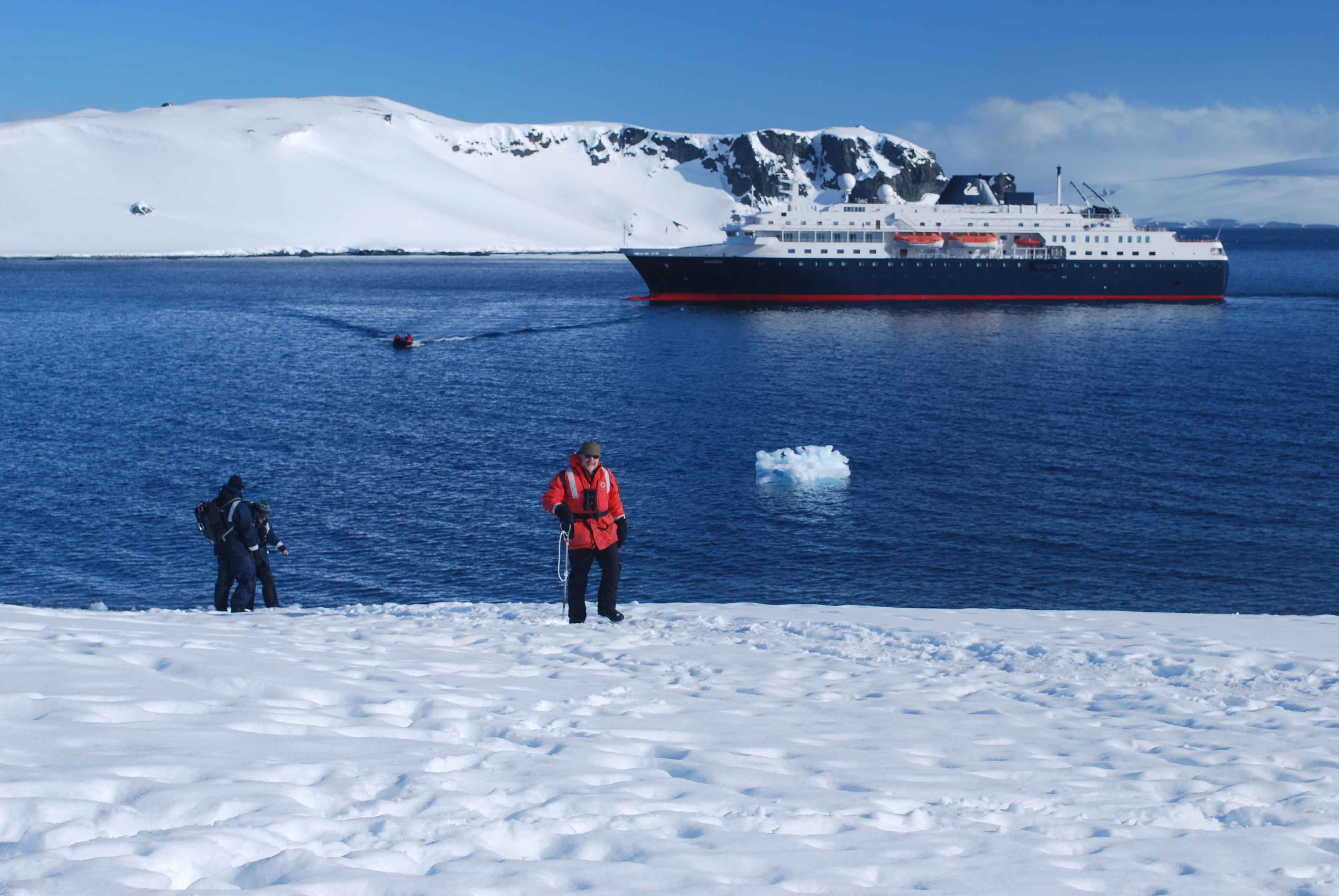
Because I have both conducted research at Palmer Station and been a lecturer aboard an Antarctic cruise ship that regularly visits the station, I have a unique perspective on the logistics, challenges, and inherent value of these station visits by citizens from around the world.
- Details
- Written by: Julie Schram
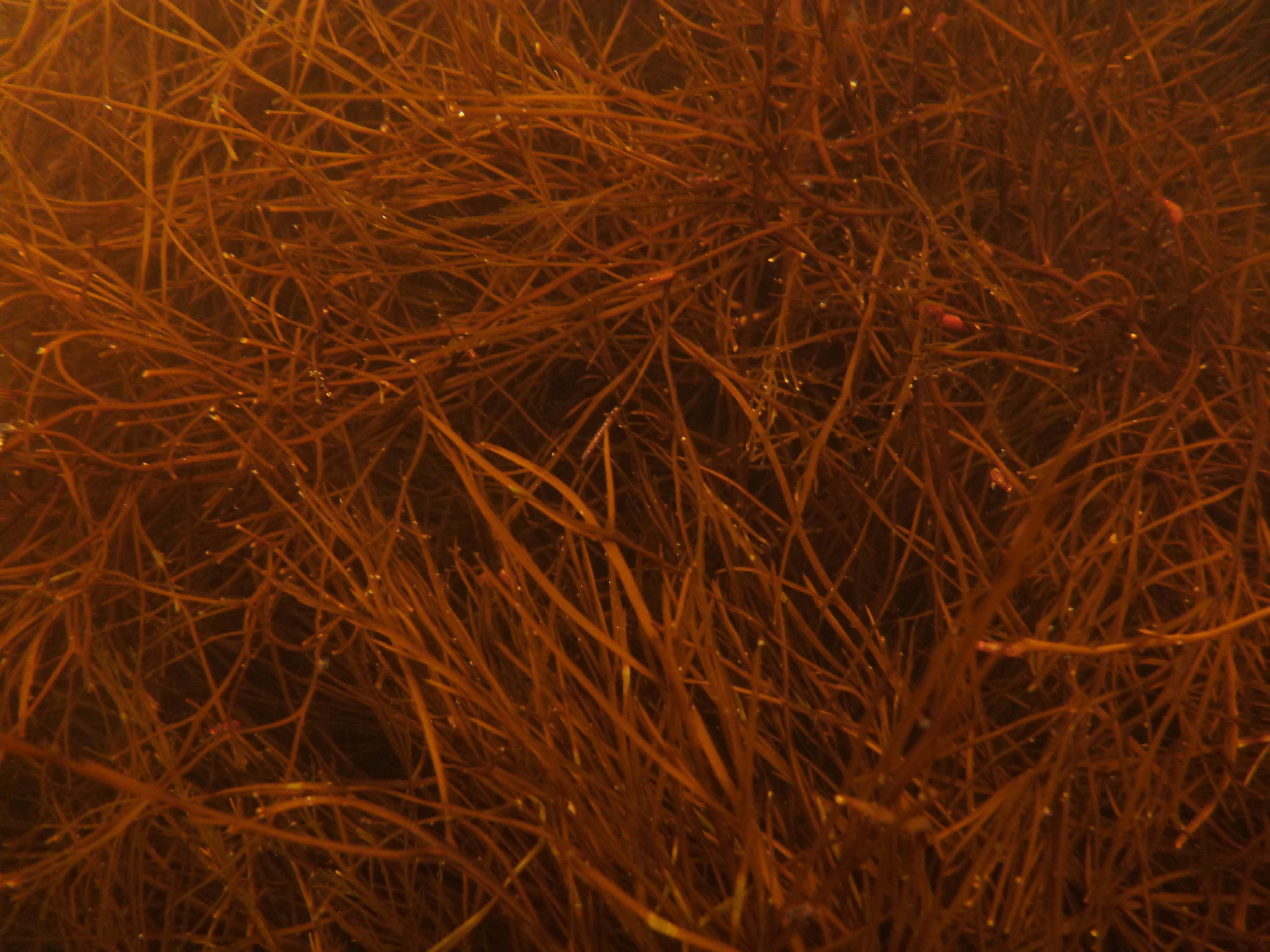
As Maggie and others have mentioned previously, one of the species I am working with this season is an omnivorous amphipod species, Gondogeneia antarctica (Gondo for short). Just as a quick reminder, these are the highly active and (if you ask me) charismatic microfauna that live on the big-branched brown algae (Desmarestia species) down here in large numbers.
- Details
- Written by: Maggie Amsler
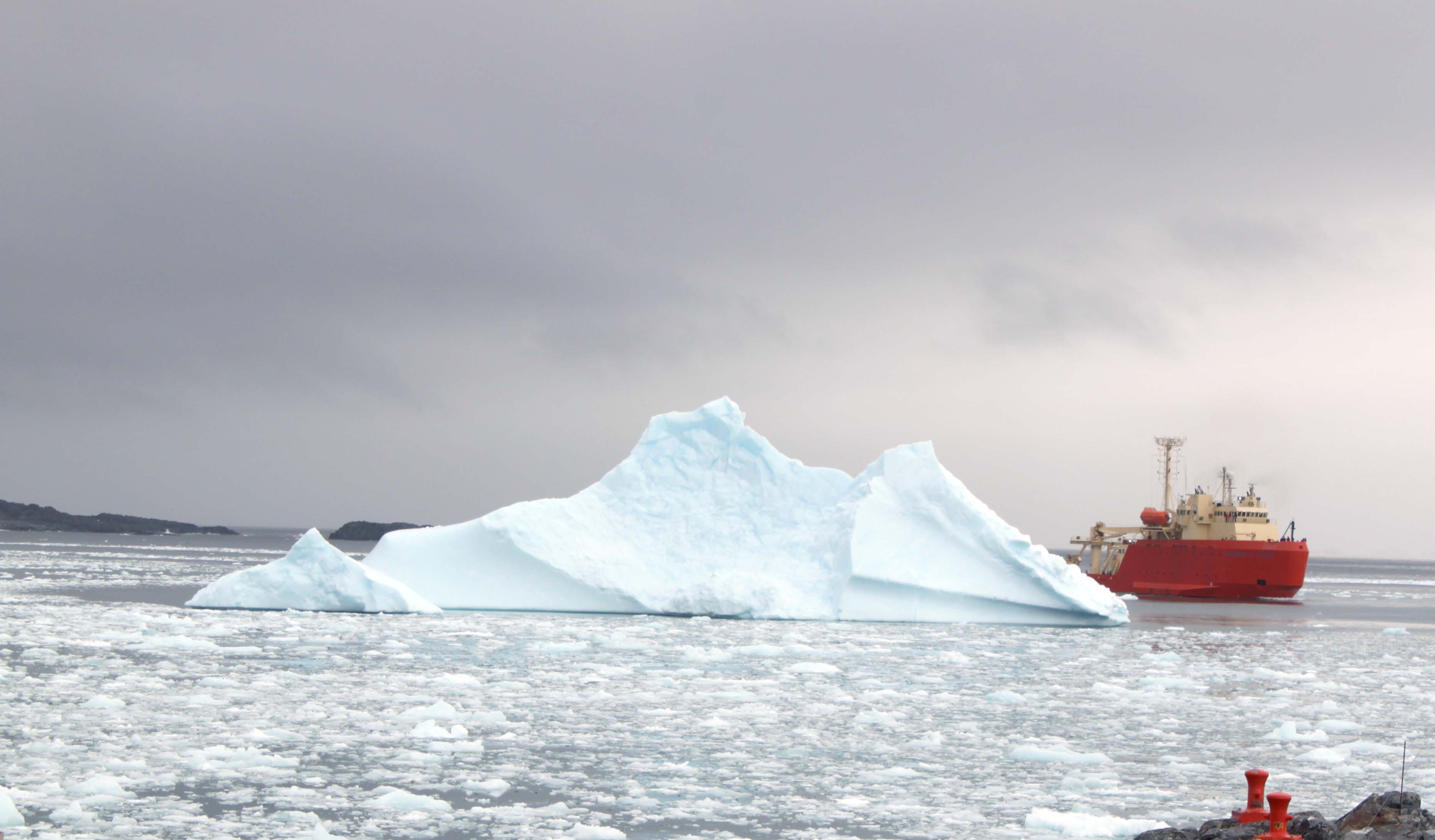
The Laurence M. Gould sailed back into the Palmer Station world last week bearing gifts from the real world - several hundreds of pounds of fresh produce! That night the meal buffet line featured a huge stainless steel bowl its interior gleaming green with crisp lettuce, brightened by offerings of crunchy sweet carrots and remarkably red and luscious tomatoes. A very welcome sight to savor, much less consume, after exhausting the last shipment of salad makings weeks ago. Sweet and succulent watermelon followed for dessert, what a treat!
- Details
- Written by: Chuck Amsler
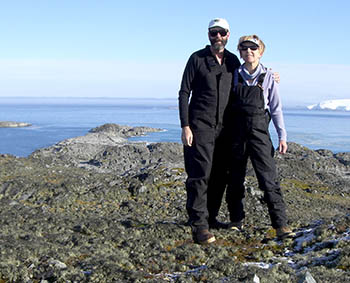
As I said in my last post, Sunday mornings are normally our "day off." We awoke to an unexpectedly calm and sunny day. Although like most of the scientists, our group is out in the field sampling many days, the station staff really only has Sundays (they get the whole day off) to enjoy the surroundings. So for them in particular, having a nice Sunday is a special treat.
- Details
- Written by: Kevin Scriber
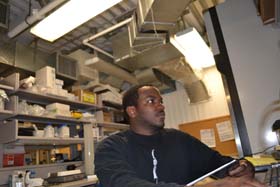
Working today, in the laboratory, I came to realize that my time here, in Antarctica, grows short. I have only been here a month; now I have two weeks before departing back to Birmingham, Alabama. The time passed in the blink of an eye. I'm sure the other graduate students will feel the same, when June rolls around.
- Details
- Written by: Kate Schoenrock
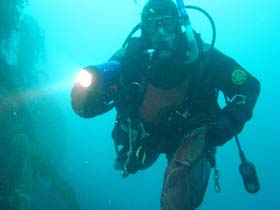
Recently I began watching the new Star Wars trilogy and there are many references to bacterial communities (metachlorian counts) in Jedis and Sith lords because they are the source of the ‘force’. This got me thinking… bacterial communities are incredibly common in the marine environment on rocks and algae, on animals, and in the water column. This is a really cool aspect of the marine environment that has become a popular area of research in marine ecology since quorum sensing was discovered. Quorum sensing is the name of a method of communication in bacterial communities where certain signaling molecules (peptides or sugars) coordinate decentralized communities in making ‘group decisions’.
- Details
- Written by: Jim McClintock
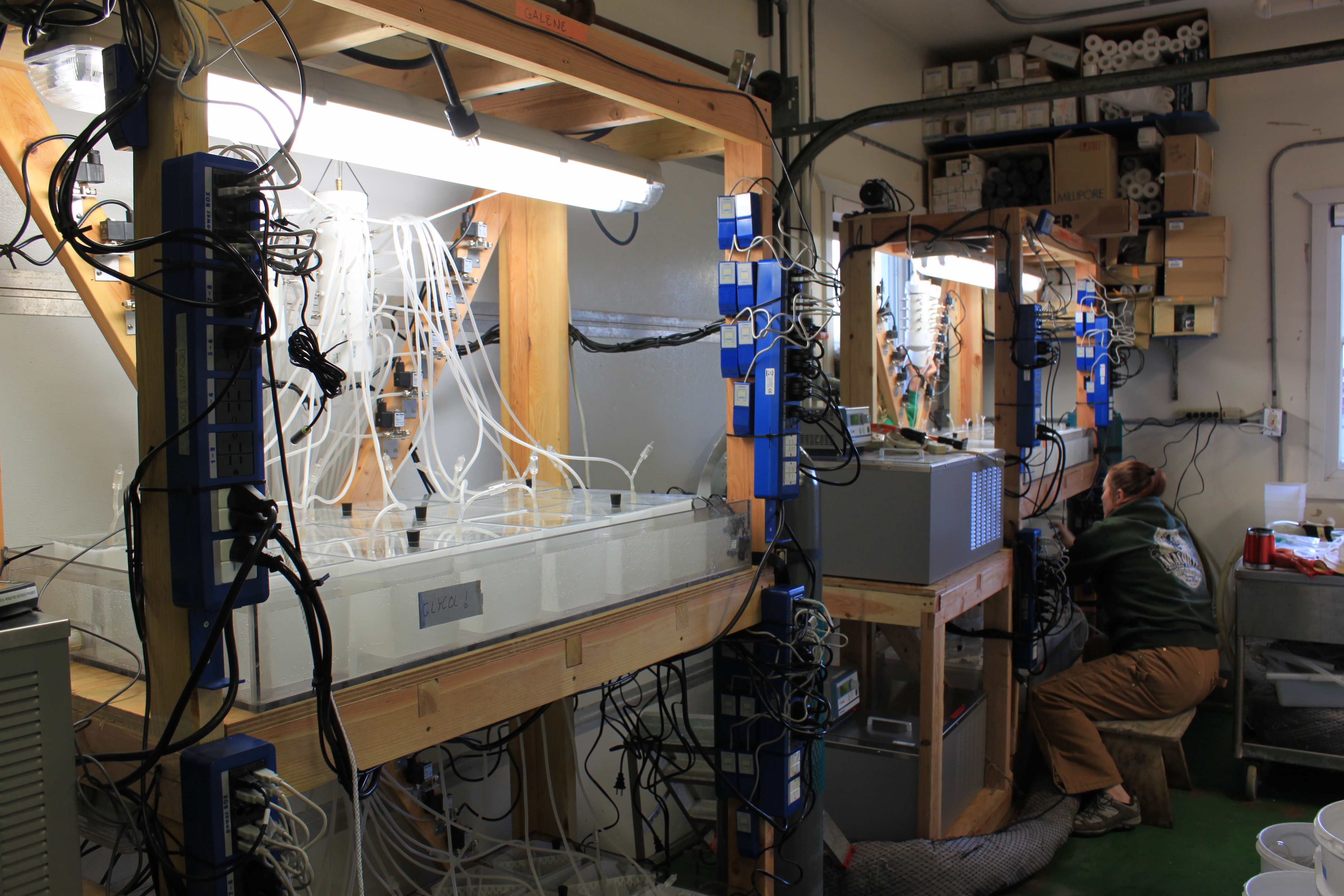
With an increasing focus on a burgeoning list of extreme weather events, elevated temperatures, and rising sea levels, ocean acidification or “the other CO2 problem”, just doesn’t get its due respect. As a marine biologist I find this puzzling. After all, most everyone enjoys the fruits of the sea: mouth-watering shrimp, crabs, lobsters, clams, and oysters. And who doesn’t thrill in donning a snorkel and mask and finning themselves over a coral reef bristling with life. Yet all over the globe these treasures of palette and eye are under increasing chemical assault.
- Details
- Written by: Julie Schram
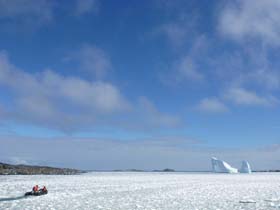
If you have been following our progress so far this season, you may have noticed that we have been covering a wide variety activities and projects in these first several weeks of our field season. The climate change grant that brought us down here to complete our research this (and last) year is a very ambitious research project.
- Details
- Written by: Maggie Amsler
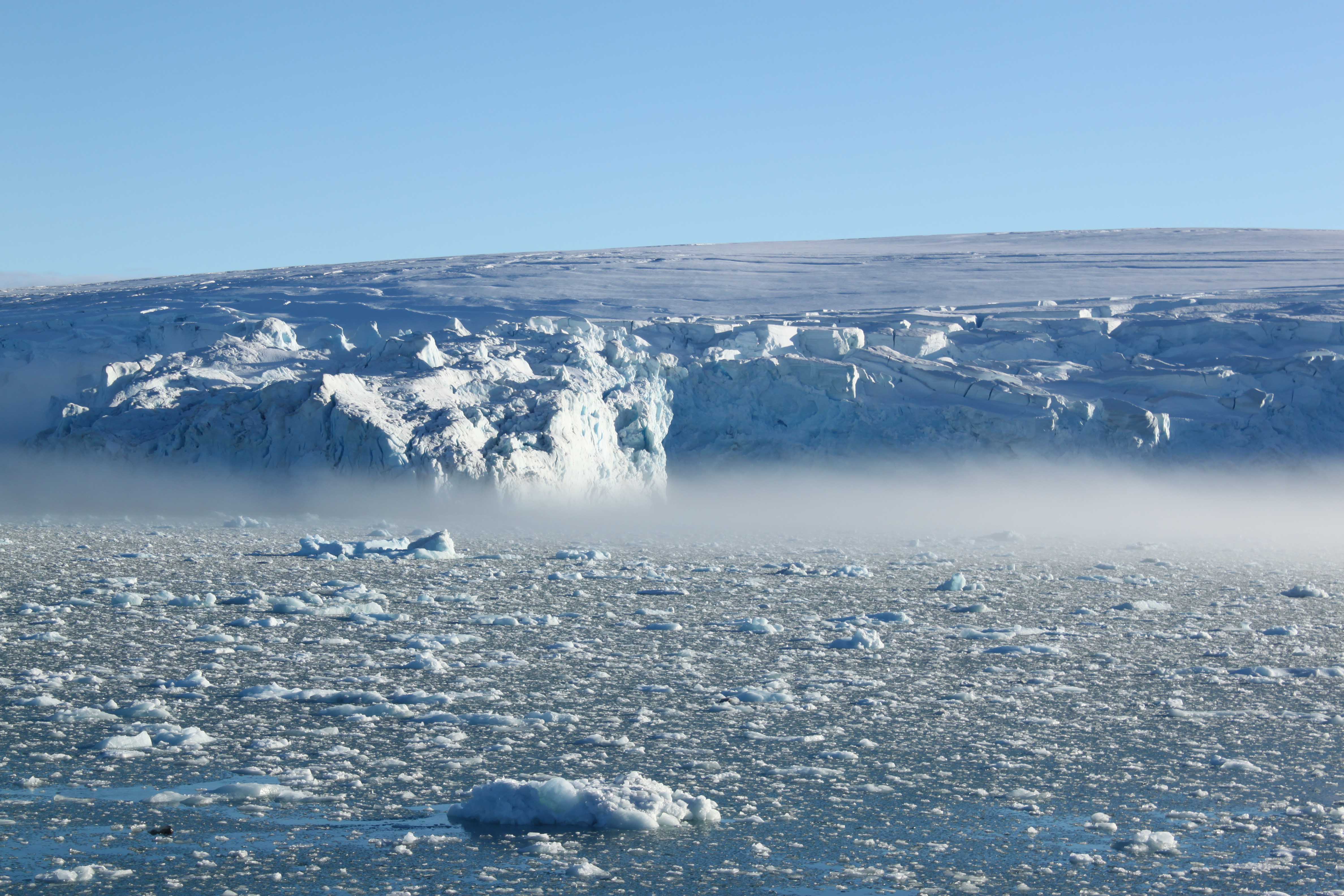
Years ago, after a scientific conference in South Africa, I had the opportunity to experience a short safari. What a thrill is was to witness the expanse of grasslands and savannas and all the amazing creatures found in these lushly rich habitats. Not unlike Antarctica is some ways with stark, vast un-peopled landscapes. The image at right is of course not South Africa.
- Details
- Written by: Chuck Amsler
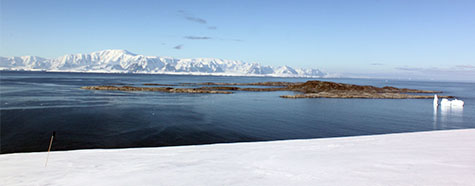
After a string of bad weather days that lasted over a week and kept us from diving anywhere but right from the shore off the station, the last few days have been calm and yesterday and today (Sunday) have been absolutely beautiful. Sunday mornings are our "day off" each week and instead of meeting at 8:00 AM to plan the day we all have free time until 1:00 PM. Maggie hiked up the glacier this morning and took this photo.
- Details
- Written by: Kevin Scriber
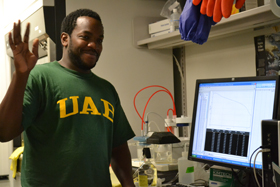
My time here in Antarctica continues to be one of the most remarkable trips of my life. The fieldwork, environment, and life at Palmer Station are great experiences. Here we have a great community with a diverse array of people, research endeavors, and areas of expertise. We have social activities after work, such as movies, science talks, and even games of dominoes. The people here are a select few. The cheerful exuberance of everyone is contagious. There are always smiles on faces and the warm feeling of home.
- Details
- Written by: Kate Schoenrock
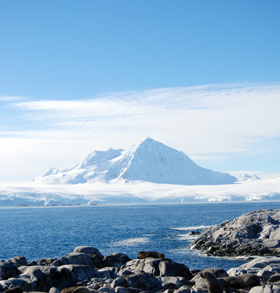
Light is a pretty essential source of energy that most people don’t often think about until seasons change. At Palmer Station we have long days with high light levels when we begin our field season (late summer) and the sun goes down after 10 PM. Because of this we were lucky enough to see the green flash two nights in a row this year after work while the ARSV Laurence M. Gould was still here. Now the night is coming faster, and fall is quickly settling in. Near the end of our field season in June, day length will be about four hours of daylight much of which is not direct sunlight.
- Details
- Written by: Jim McClintock
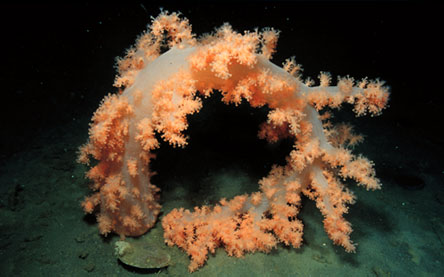
My former doctoral student, Marc Slattery, now a Professor at Ole Miss, could not believe his eyes. The giant tree-like soft coral, Gersemia antarctica, seen on the time-lapse video he had just recovered, had laid its trunk down against the substrate and rolled its polyp-laden branches in a complete circle! As thousands of tiny feeding polyps (tentacled projections) encountered the nutrient-rich muck, they engulfed organic particles, small plant-like diatoms, and tiny invertebrates. Like sheep grazing in a field, once the foraging circle was completed it was time to move on to greener pastures. The soft coral stood back up and moved across the seafloor by contracting the bulbous root-like base of its trunk. When it had moved to a new region of the seafloor, it laid itself back down, and commenced feeding again.
- Details
- Written by: Julie Schram
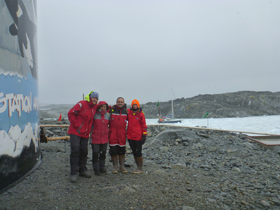
If you have been checking out the Palmer Station webcam (http://www.usap.gov/videoclipsandmaps/palWebCam.cfm) recently you may have noticed that we have been having a wide variety of visitors lately. The type of visitor and duration of stay have varied greatly, mostly the length of stay has depended on the weather. Our visitors have ranged from a 12 meter (39.4 ft) long sailboat to giant icebergs and small cruise ships.
- Details
- Written by: Maggie Amsler
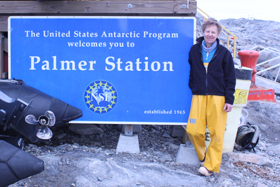
UAB in Antarctica’s initial days on station were a frenzy of unpacking science gear into labs and tossing personal gear into an assigned dorm room while simultaneously packing and prepping for our dive cruise time on the Pt. Sur which was described in Chuck’s last entry. It was a hectic stretch and everyone was ready for our first official day off since leaving Punta Arenas. Sunday morning until 1PM is the project’s weekly “day” off (yes, fuzzy math). Team members took the opportunity to finally get settled and comfy in their rooms and for first-time Palmerite Kevin Scriber, the opportunity to fully explore his new home.